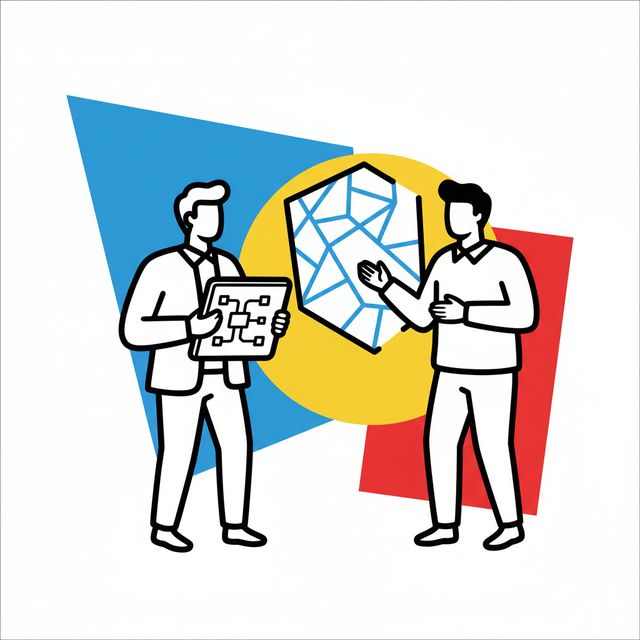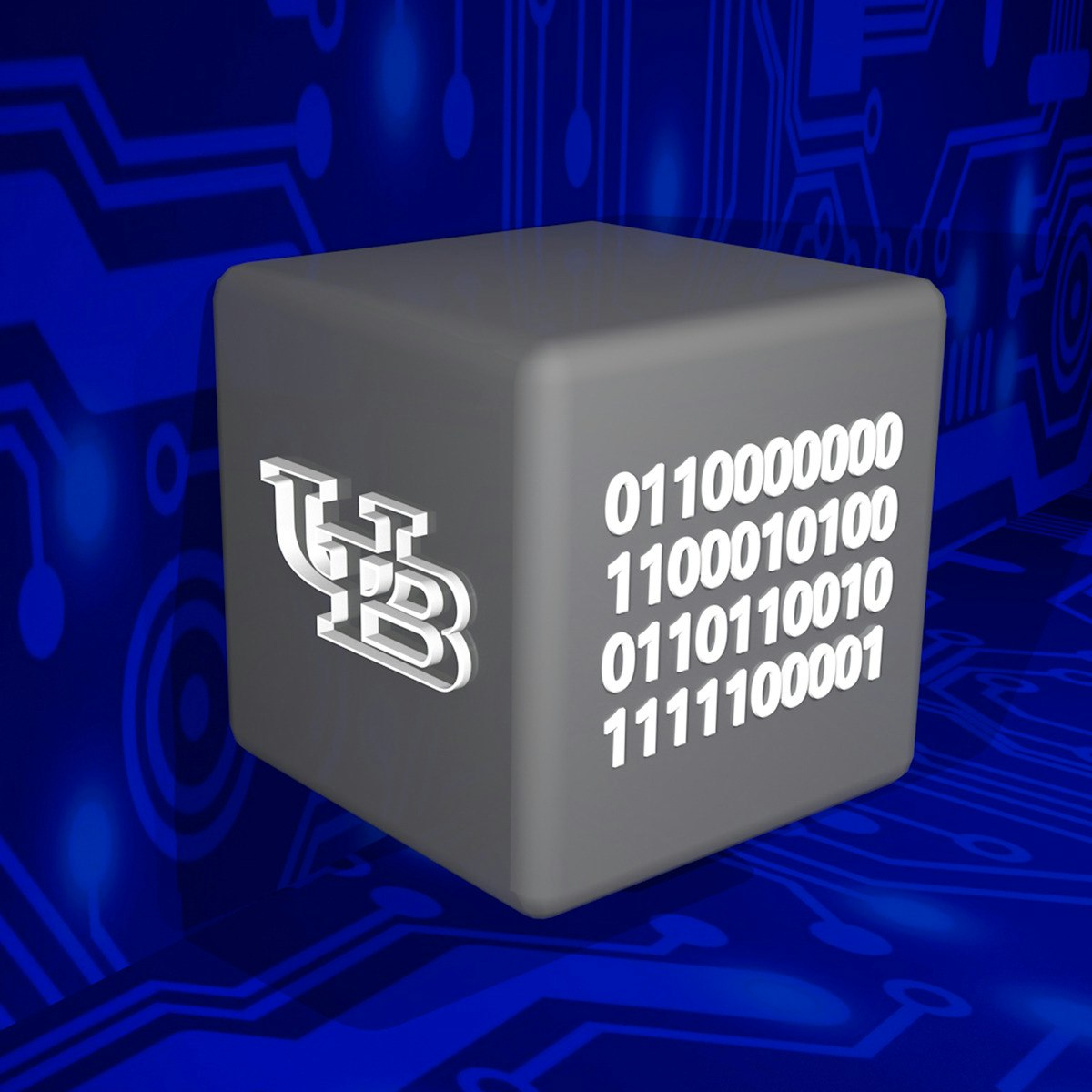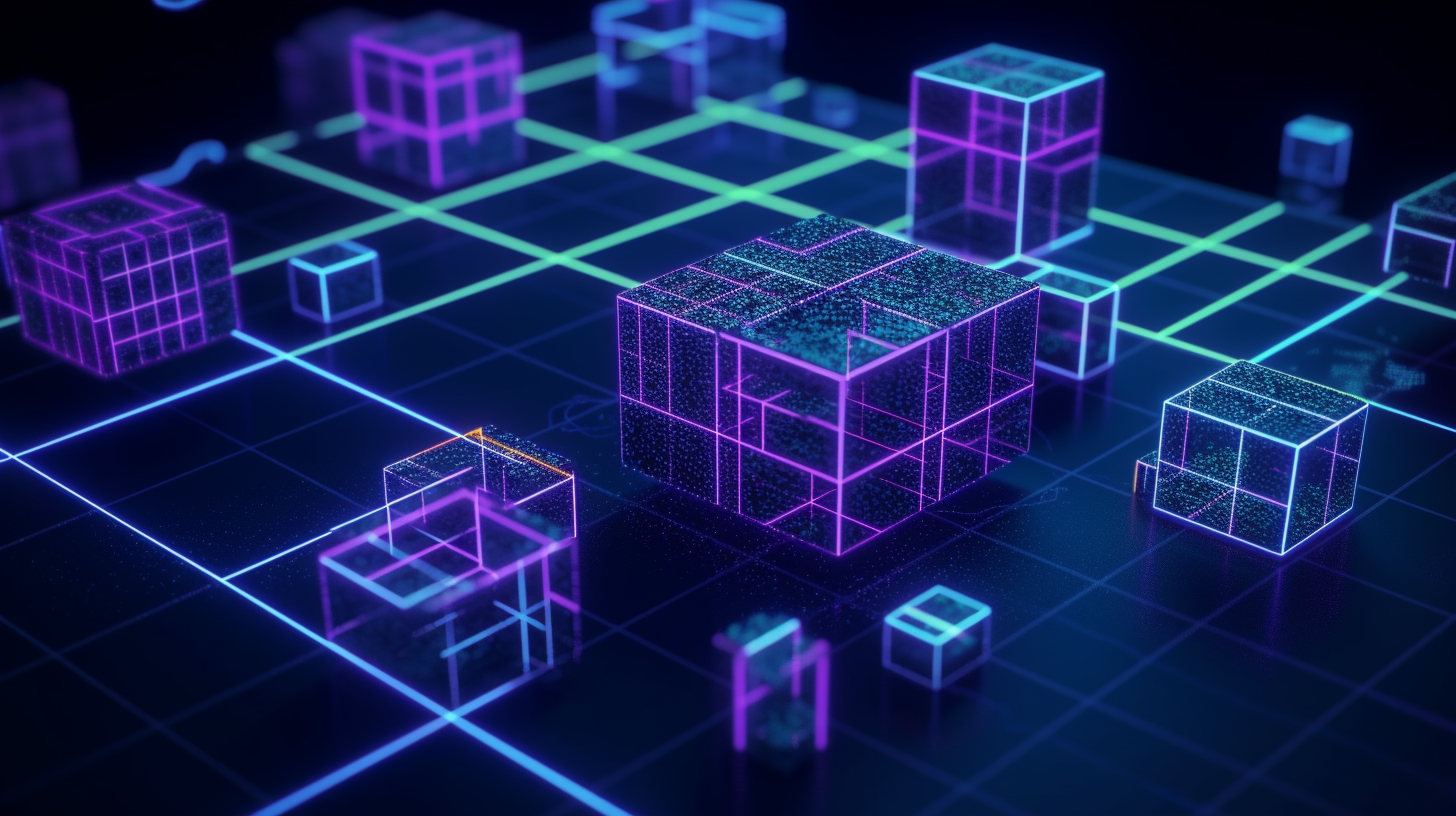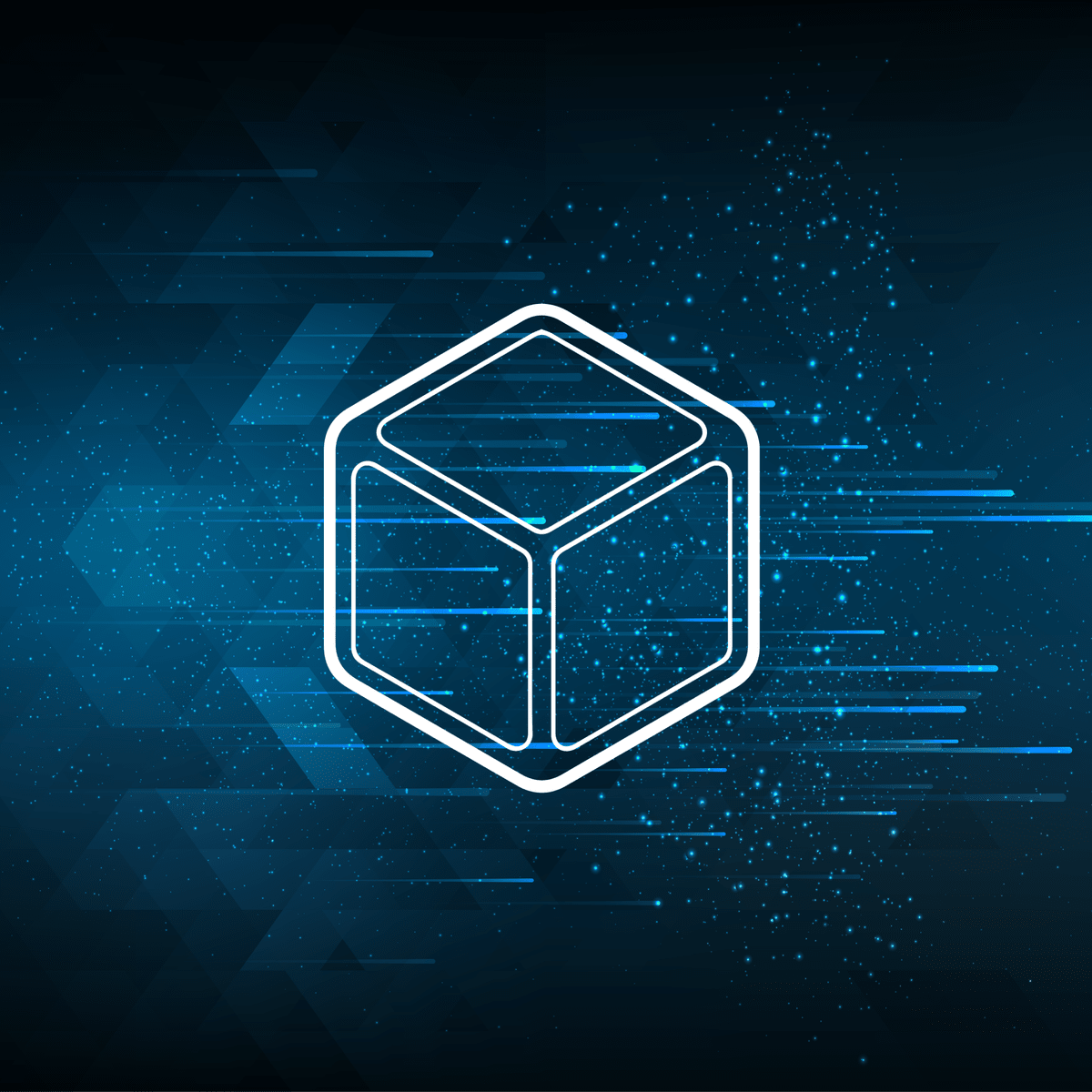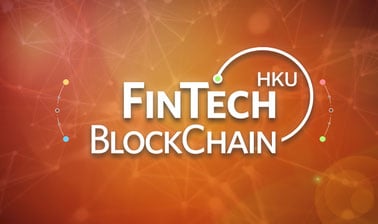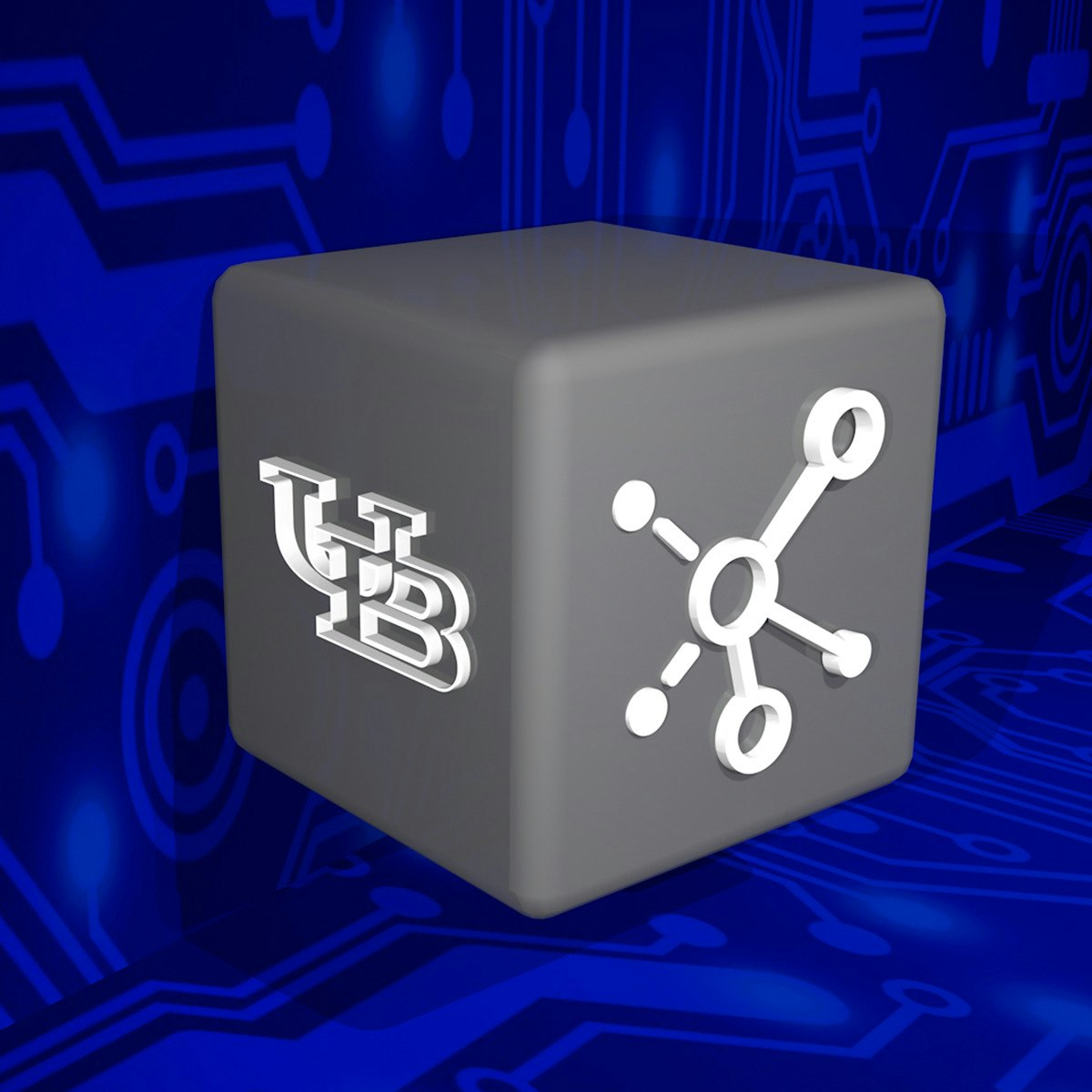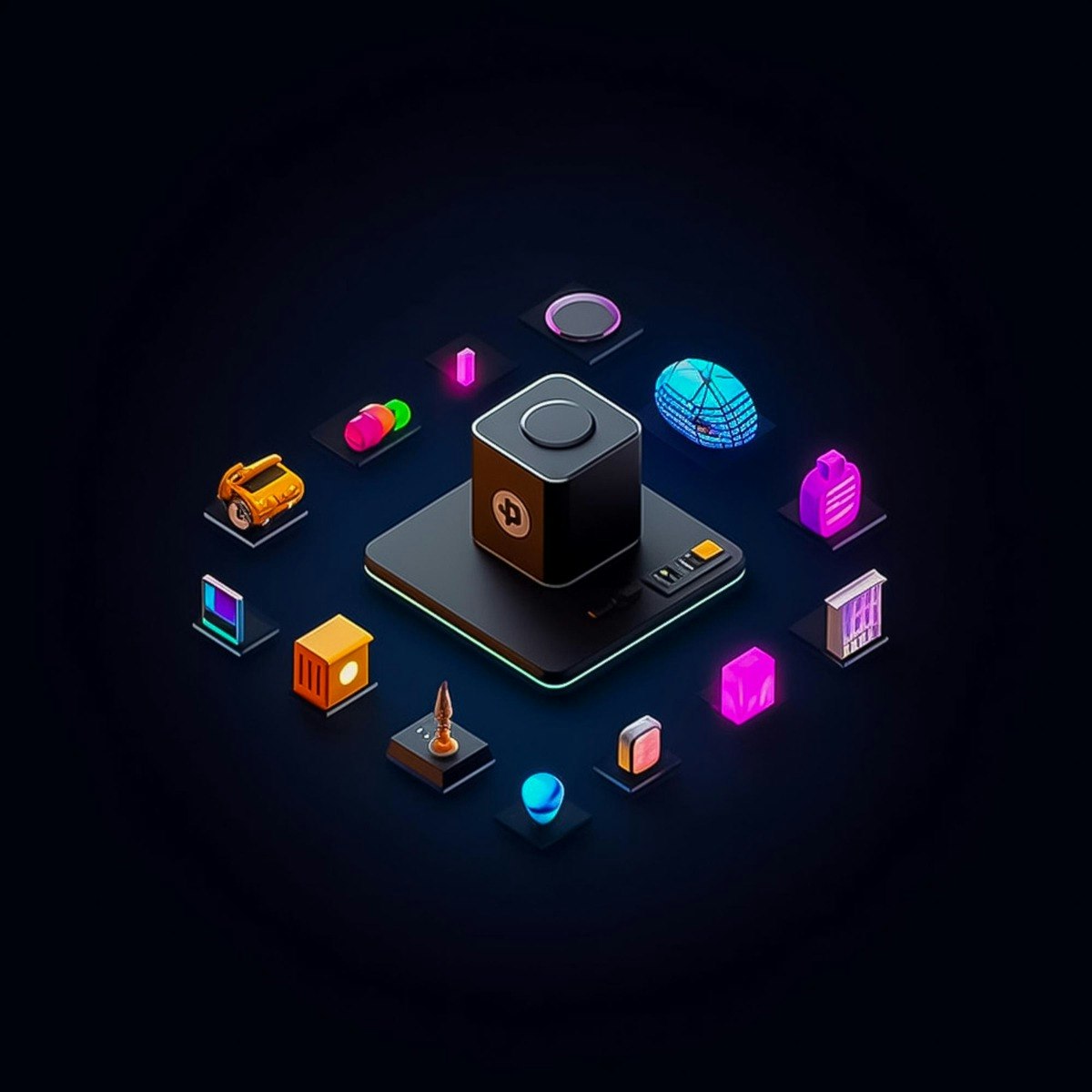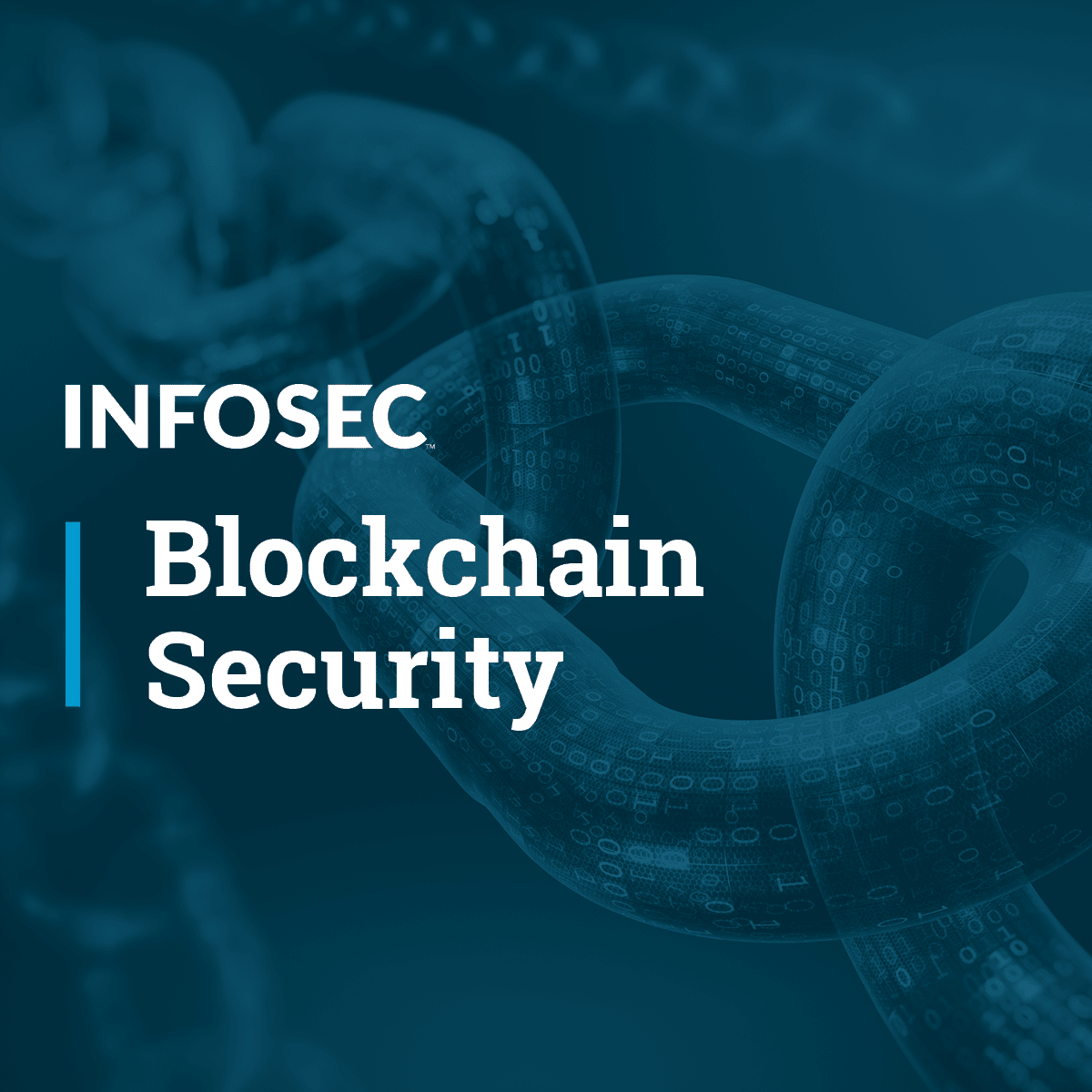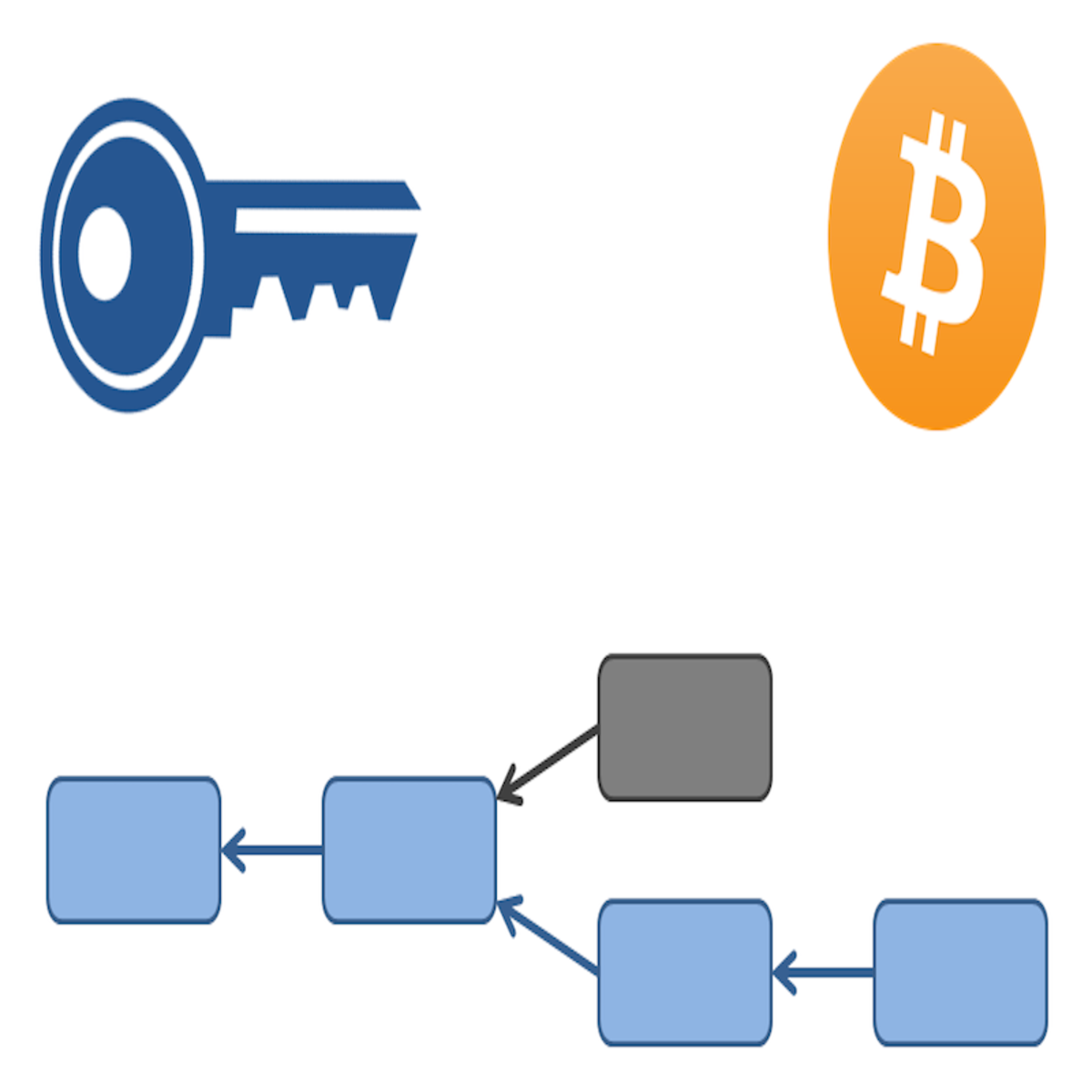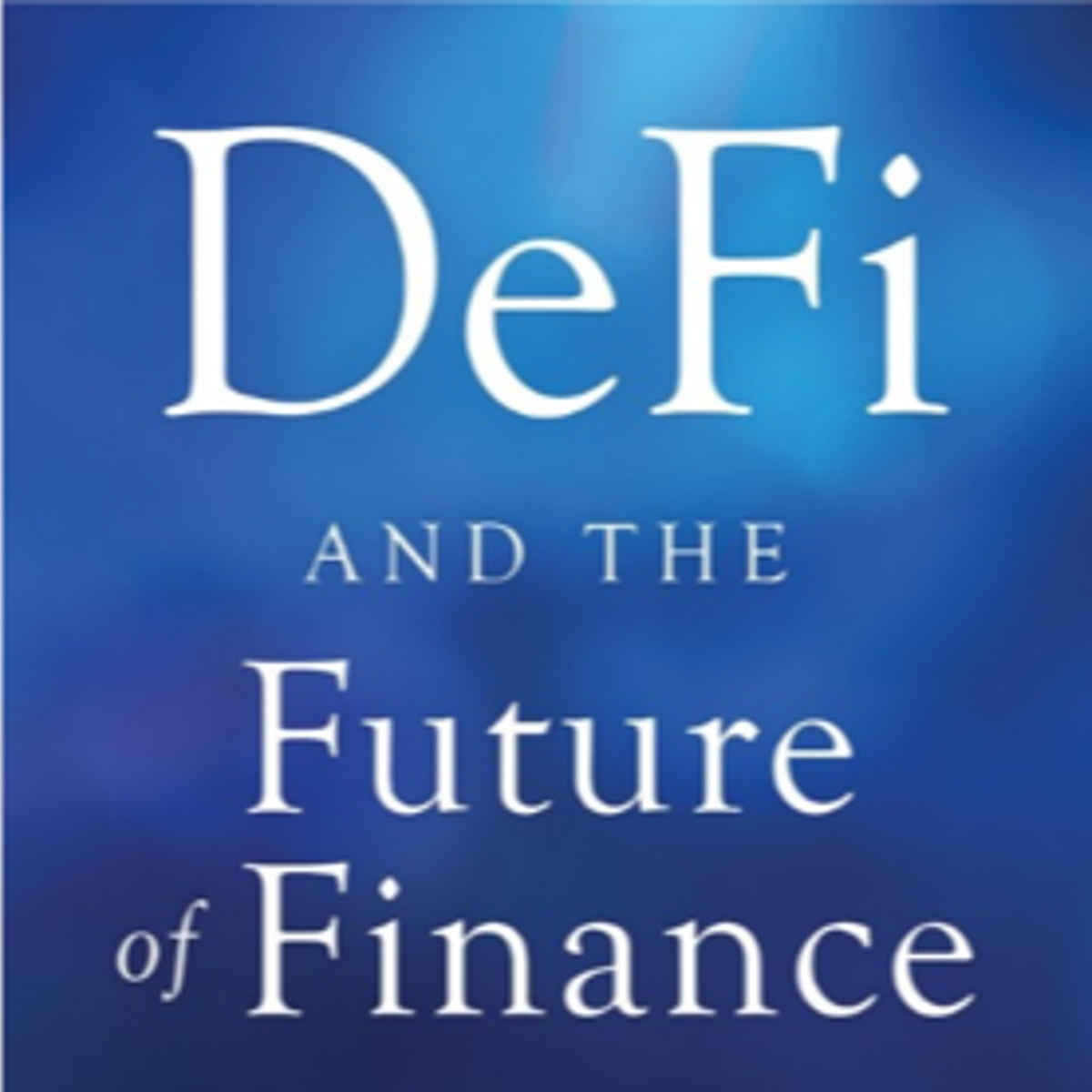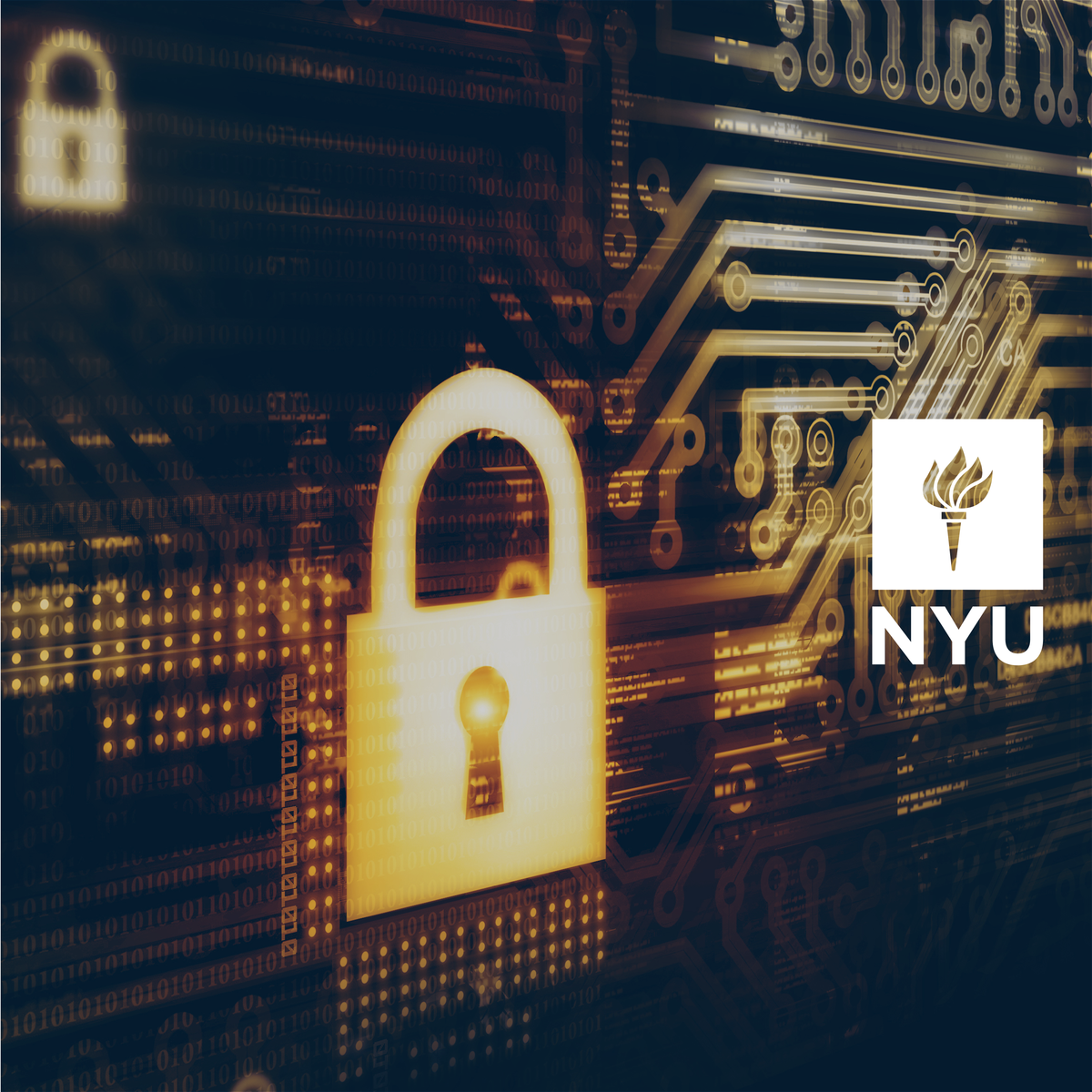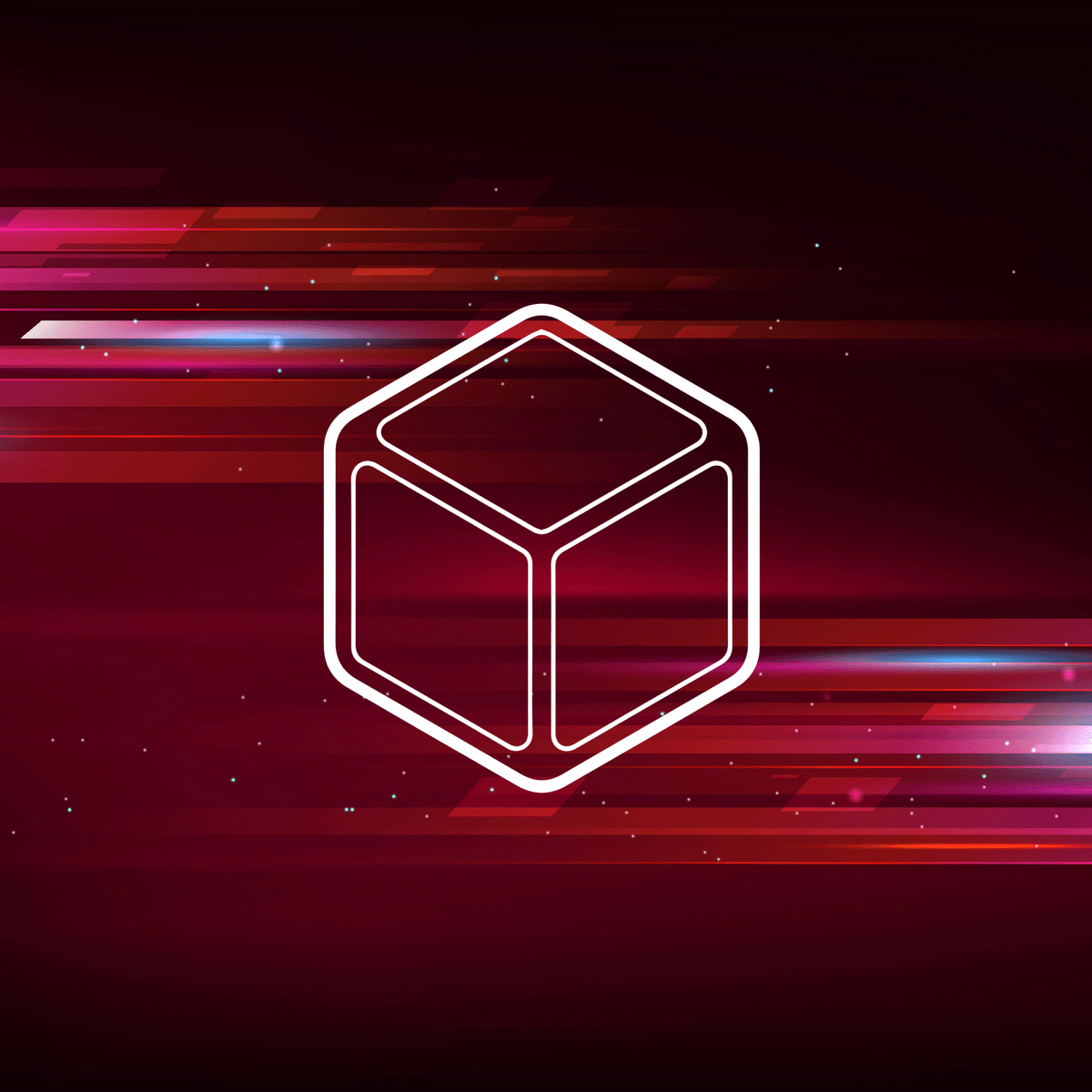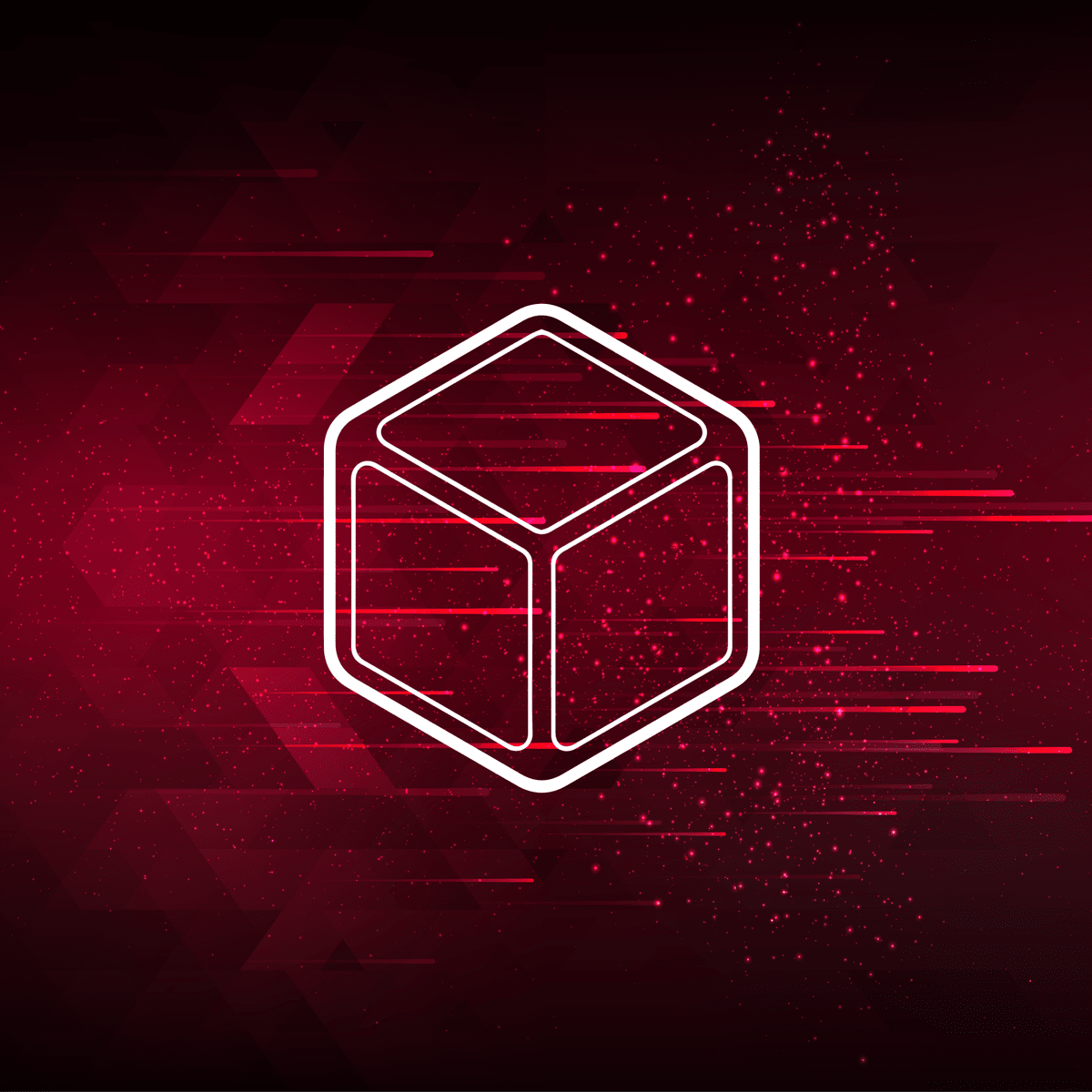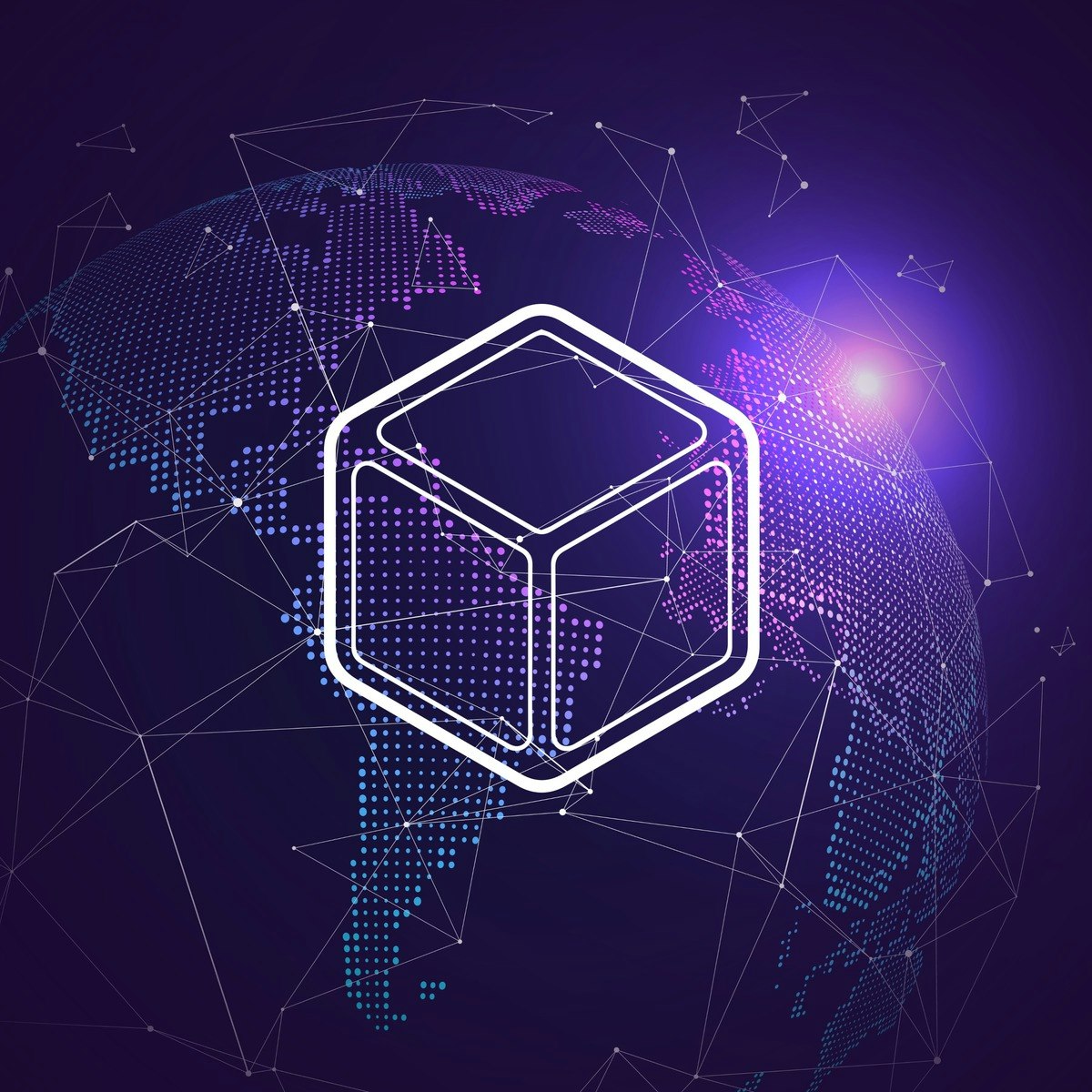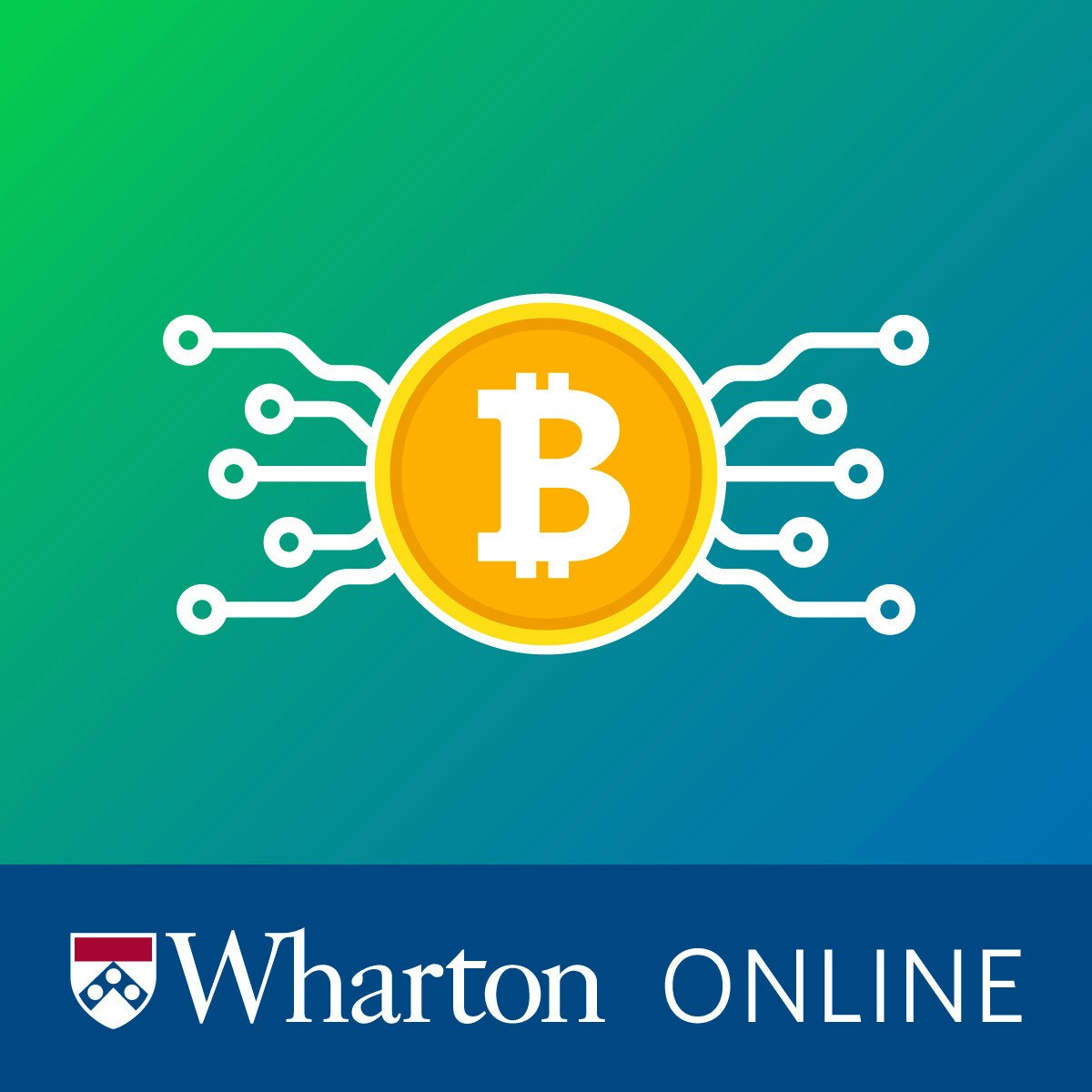Blockchain Developer
Blockchain Developer: Forging the Future of Decentralized Technology
A Blockchain Developer is a specialized software engineer who designs, implements, and maintains applications and systems based on blockchain technology. This often involves creating secure digital transaction ledgers, developing smart contracts, and building decentralized applications (dApps). As architects of trust in the digital world, blockchain developers play a crucial role in an increasingly interconnected and data-driven society. Their work underpins systems that aim to be transparent, immutable, and resistant to censorship.
The field of blockchain development is dynamic and offers intellectually stimulating challenges. Developers in this space often find themselves at the forefront of innovation, working with cutting-edge cryptographic techniques and distributed consensus mechanisms. The opportunity to contribute to transformative technologies that can reshape industries, from finance to healthcare, is a significant draw for many. Furthermore, the collaborative and often open-source nature of blockchain projects provides a unique environment for learning and growth.
Introduction to Blockchain Development
Embarking on a journey into blockchain development requires a foundational understanding of what this technology is and the principles that guide it. It's a field that, while relatively new, is already making significant waves across numerous sectors. For those curious about this career, grasping these initial concepts is the first step towards understanding the profound impact blockchain developers can have.
Understanding Blockchain Technology and Its Core Principles
At its core, a blockchain is a distributed, immutable ledger. Think of it as a digital record book that's duplicated and spread across an entire network of computer systems. When a new transaction or piece of data is added, it's grouped with others into a "block," which is then "chained" to the previous block using cryptography. This makes it incredibly difficult to alter past records, as doing so would require changing all subsequent blocks across the majority of the network – a computationally intensive and usually prohibitive task.
The core principles underpinning blockchain technology are decentralization, transparency (or controlled visibility, depending on the type of blockchain), and immutability. Decentralization means there's no single point of control or failure; the network is maintained by many participants. Transparency implies that all participants (or those with permission) can see the recorded transactions, fostering trust. Immutability ensures that once data is recorded, it cannot be changed or deleted, providing a reliable audit trail.
For someone completely new to the concept, imagine a shared digital document that everyone in a group can see and add to, but no one can secretly delete or change what's already been written. Each new entry is cryptographically linked to the last, and everyone gets an updated copy automatically. This shared, secure, and unalterable record-keeping is the essence of blockchain.
These introductory courses provide a good overview of blockchain technology and its fundamental concepts, making them accessible even if you're just starting to explore the field.
To delve deeper into the foundational ideas, "The White Paper" by the pseudonymous Satoshi Nakamoto is the original document that introduced Bitcoin and the concept of blockchain. "Blockchain Basics" provides a non-technical explanation of this technology.
The Pivotal Role of Blockchain Developers in Decentralized Ecosystems
Blockchain developers are the architects and builders of these decentralized systems. They translate the theoretical possibilities of blockchain technology into tangible applications and platforms. Their work is crucial in creating and maintaining the infrastructure that allows decentralized networks to function securely and efficiently. Without skilled developers, the promise of blockchain would remain largely conceptual.
These professionals are responsible for a wide array of tasks, from designing the cryptographic protocols that secure the network to developing the smart contracts that automate agreements and transactions. They also build the decentralized applications (dApps) that users interact with, creating interfaces that are both functional and user-friendly despite the underlying complexity of the technology.
Essentially, blockchain developers bridge the gap between the complex technical underpinnings of blockchain and its real-world applications. They are problem-solvers who must think critically about security, scalability, and usability to build robust and effective decentralized solutions. The role is multifaceted, demanding both deep technical expertise and a creative approach to leveraging blockchain's unique capabilities.
Industries Embracing Blockchain Solutions
The adoption of blockchain technology is no longer confined to cryptocurrencies; it spans a diverse range of industries. Businesses are increasingly recognizing its potential to enhance transparency, security, and efficiency in their operations. This widespread adoption is a key driver of demand for skilled blockchain developers.
Financial services, for example, are heavily investing in blockchain for applications like cross-border payments, trade finance, and digital identity verification. Supply chain management is another significant area, where blockchain can provide an immutable record of goods as they move from origin to consumer, combating counterfeiting and improving traceability. Healthcare is exploring blockchain for secure management of patient records and pharmaceutical supply chains. Even governments are looking into blockchain for secure voting systems, land registry, and managing public records.
Other notable sectors include entertainment (for managing royalties and intellectual property), real estate (for streamlining property transactions), and energy (for managing energy grids and facilitating peer-to-peer energy trading). The breadth of these applications underscores the versatility of blockchain technology and the varied opportunities available to developers in this field.
These courses offer insights into how blockchain is being applied across different business contexts and its transformative potential.
A Brief History of Blockchain's Evolution
While the concept of cryptographically secured chains of blocks was first described in the early 1990s by Stuart Haber and W. Scott Stornetta, blockchain technology gained prominence with the launch of Bitcoin in 2008 by the pseudonymous Satoshi Nakamoto. Bitcoin introduced the first decentralized digital currency, demonstrating the practical application of blockchain as a distributed ledger.
Initially, blockchain was almost exclusively associated with cryptocurrencies. However, developers and researchers soon recognized its potential beyond digital cash. The next major evolutionary step came with the advent of Ethereum in the mid-2010s, which introduced the concept of smart contracts – self-executing contracts with the terms of the agreement directly written into code. This innovation opened the door to a much wider range of decentralized applications.
Since then, the blockchain space has seen rapid development, with the emergence of various "generations" of blockchain technology, each aiming to improve upon scalability, security, and interoperability. This has led to a diverse ecosystem of blockchain platforms, protocols, and development tools, continually pushing the boundaries of what is possible with decentralized technology.
Key Responsibilities of Blockchain Developers
The day-to-day work of a blockchain developer can be quite varied, depending on the specific project, the type of blockchain being used (e.g., public, private, consortium), and the developer's specialization. However, several core responsibilities are common across the field, focusing on the design, development, and maintenance of blockchain-based systems and applications.
Designing and Implementing Smart Contracts
One of the most defining responsibilities of many blockchain developers is the creation and deployment of smart contracts. These are self-executing contracts where the terms of the agreement between buyer and seller (or any interacting parties) are directly written into lines of code. The code and the agreements contained therein exist across a distributed, decentralized blockchain network.
Developers design smart contracts to automate a wide variety of processes, from facilitating financial transactions and managing digital assets to enforcing complex business logic. This involves careful planning of the contract's functionality, writing secure and efficient code (often in languages like Solidity for Ethereum or Rust for platforms like Solana), and rigorous testing to prevent vulnerabilities. Once deployed, smart contracts are typically immutable, meaning errors can be costly and difficult to rectify.
The development of robust and secure smart contracts is fundamental to the functioning of many decentralized applications and blockchain-based solutions. It requires a deep understanding of both the programming language and the specific blockchain platform's intricacies.
For those looking to gain hands-on experience with smart contract development, these courses offer practical introductions.
Pioneering Decentralized Applications (dApps)
Blockchain developers are often at the forefront of building decentralized applications, or dApps. Unlike traditional applications that run on centralized servers, dApps operate on a peer-to-peer blockchain network. This architecture offers benefits like increased resilience to censorship, enhanced user privacy (in some designs), and greater transparency in how the application functions.
Developing dApps involves creating a user interface (front-end) that interacts with smart contracts (back-end) deployed on the blockchain. This requires skills in web development technologies (like JavaScript and frameworks such as React or Vue.js) in addition to blockchain-specific knowledge. Developers must consider the user experience carefully, often abstracting away the complexities of blockchain interactions to make dApps accessible to a wider audience.
The range of dApps is vast, covering areas like decentralized finance (DeFi), gaming, social media, and supply chain management. Building successful dApps requires a blend of software engineering prowess, an understanding of user needs, and a keen grasp of how blockchain technology can provide unique value.
These courses provide practical guidance on developing decentralized applications.
Customizing Blockchain Protocols
While many developers build applications on existing blockchain platforms like Ethereum or Solana, some specialize in customizing or even creating entirely new blockchain protocols. This is a more advanced area of blockchain development that involves working at a deeper level of the technology stack.
Customizing a blockchain protocol might involve modifying its consensus mechanism (the rules by which network participants agree on the state of the ledger), adjusting its governance model, or optimizing its performance for specific use cases. For instance, a company might develop a private blockchain tailored to its internal supply chain needs, with specific rules for data access and transaction validation.
This type of work requires a profound understanding of distributed systems, cryptography, and network engineering. Developers in this space, sometimes known as core blockchain developers, are responsible for the fundamental architecture and functionality of the blockchain itself. Their contributions are crucial for advancing the capabilities and addressing the limitations of current blockchain technologies.
Ensuring Security: Auditing and Vulnerability Prevention
Security is paramount in blockchain development. Given that blockchain systems often handle valuable assets and sensitive data, vulnerabilities can have severe consequences. A key responsibility for many blockchain developers, particularly those working with smart contracts, is security auditing and vulnerability prevention.
This involves meticulously reviewing code for potential flaws, such as reentrancy attacks, integer overflows/underflows, or incorrect access controls. Developers use various tools and techniques, including static analysis, formal verification, and extensive testing, to identify and mitigate these risks before deployment. For critical applications, third-party security audits by specialized firms are also common practice.
Proactive security measures and a deep understanding of common attack vectors are essential. Blockchain developers must stay updated on the latest security best practices and emerging threats in the rapidly evolving landscape of blockchain technology. This continuous learning and vigilance are crucial for building trustworthy and resilient decentralized systems.
These courses focus on the critical aspects of blockchain security.
Bridging Networks: Blockchain Interoperability
As the blockchain ecosystem has grown, so has the number of distinct blockchain networks, each with its own strengths and weaknesses. A significant challenge and an important area of responsibility for blockchain developers is enabling interoperability – the ability for different blockchain networks to communicate and exchange data or assets seamlessly.
Developers work on creating "bridges" and cross-chain communication protocols that allow, for example, a token on one blockchain to be used in an application on another, or for data from one ledger to trigger an action on a different ledger. This is crucial for avoiding a fragmented ecosystem where blockchains operate in isolated silos.
Achieving true interoperability is complex, involving challenges related to differing consensus mechanisms, security models, and data formats. Developers in this specialization are working on innovative solutions to connect disparate networks, aiming to create a more unified and versatile "internet of blockchains." Their work is vital for unlocking the full potential of decentralized technologies by allowing them to work together harmoniously.
record:41cb9w
Essential Technical Skills for Blockchain Developers
To excel as a blockchain developer, a robust set of technical skills is indispensable. This career path demands proficiency in specific programming languages, a solid understanding of cryptographic principles, and familiarity with the unique architecture of decentralized systems. Aspiring developers should focus on acquiring these core competencies to build a strong foundation.
Core Programming Languages: Solidity, Rust, and Go
Proficiency in certain programming languages is fundamental for blockchain development. Solidity is arguably the most well-known, as it's the primary language for writing smart contracts on Ethereum and other Ethereum Virtual Machine (EVM)-compatible blockchains. It's a statically-typed, contract-oriented language with a syntax similar to JavaScript.
Rust is gaining significant traction in the blockchain space, particularly for building high-performance and secure blockchain protocols and smart contracts on platforms like Solana and Polkadot. Rust is known for its memory safety features without relying on a garbage collector, making it suitable for systems programming where performance and reliability are critical.
Go (often referred to as Golang) is another popular choice, especially for developing the core infrastructure of blockchain networks, such as Hyperledger Fabric. Go's simplicity, efficiency in concurrent programming, and strong standard library make it well-suited for building robust and scalable backend systems.
While these are some of the most prominent, other languages like C++, Python, and JavaScript (especially for dApp front-ends and interacting with blockchains via libraries like Web3.js or Ethers.js) also play important roles in the ecosystem.
These courses can help you get started with some of the key programming languages used in blockchain development.
The Bedrock of Security: Cryptography Fundamentals
Cryptography is the mathematical foundation upon which blockchain technology is built. A solid understanding of cryptographic principles is therefore essential for any blockchain developer. This includes concepts like hash functions, public-key cryptography, digital signatures, and Merkle trees.
Hash functions are used to create unique fingerprints of data, ensuring data integrity and linking blocks in the chain. Public-key cryptography (asymmetric encryption) enables secure transactions and identity management, allowing users to prove ownership of assets without revealing their private keys. Digital signatures verify the authenticity and integrity of messages and transactions.
While developers may not always need to implement these cryptographic primitives from scratch (as they often use well-tested libraries), they must understand how they work to design secure systems, identify potential vulnerabilities, and use cryptographic tools correctly. A superficial understanding can lead to critical security flaws in blockchain applications.
These courses provide introductions to cryptography and its applications in blockchain.
Understanding Consensus: Algorithms like PoW and PoS
Consensus algorithms are the mechanisms by which distributed nodes in a blockchain network agree on the validity of transactions and the state of the ledger. Different blockchains employ different consensus mechanisms, each with its own trade-offs in terms of security, speed, energy efficiency, and decentralization. Common examples include Proof of Work (PoW), Proof of Stake (PoS), Delegated Proof of Stake (DPoS), and Proof of Authority (PoA).
Proof of Work, famously used by Bitcoin, involves "miners" solving complex computational puzzles to validate transactions and create new blocks, consuming significant energy. Proof of Stake allows users to validate transactions and create blocks based on the number of coins they hold and are willing to "stake" as collateral. This is generally considered more energy-efficient than PoW.
Blockchain developers need to understand how these consensus mechanisms function, their strengths, and their weaknesses. This knowledge is crucial when choosing a platform for development, designing applications that interact efficiently with the chosen blockchain, or even contributing to the development of new consensus protocols.
Tools of the Trade: Smart Contract Development Environments
Efficient blockchain development relies on a suite of specialized tools and environments. For smart contract development, particularly on Ethereum and EVM-compatible chains, frameworks like Truffle and Hardhat are widely used. These provide environments for compiling, deploying, testing, and debugging smart contracts.
Integrated Development Environments (IDEs) like Visual Studio Code with relevant extensions (e.g., Solidity support) are common. Remix IDE is a popular browser-based IDE that's excellent for learning and quick prototyping of smart contracts. Developers also use various libraries (e.g., OpenZeppelin for secure, reusable smart contract components) and tools for interacting with blockchains (e.g., Web3.js, Ethers.js for JavaScript interactions).
Familiarity with these tools, version control systems like Git, and command-line interfaces is essential for a productive workflow. The specific toolset will vary depending on the blockchain platform and the type of development being undertaken (e.g., core protocol development might involve different tools than dApp development).
Ensuring Reliability: Testing Frameworks and Debugging
Given the immutable nature of most deployed smart contracts and the potential financial implications of bugs, rigorous testing and effective debugging are critically important in blockchain development. Developers must meticulously test their code to ensure it behaves as expected under various conditions and is free from vulnerabilities.
Testing frameworks are integral to this process. For Solidity development, tools integrated with Truffle and Hardhat allow developers to write unit tests and integration tests for their smart contracts, often using JavaScript or TypeScript. These tests can simulate various scenarios and interactions to verify contract logic and security.
Debugging on a blockchain can be more challenging than in traditional software development due to the distributed and often opaque nature of the execution environment. Developers use specialized debuggers, event logging, and careful analysis of transaction traces to identify and resolve issues. A systematic approach to testing and debugging is a hallmark of a professional blockchain developer.
Navigating Career Pathways in Blockchain Development
The field of blockchain development offers diverse and evolving career pathways. As the technology matures and adoption grows, opportunities are expanding beyond niche cryptocurrency projects into mainstream enterprise solutions and innovative Web3 applications. Understanding these pathways can help aspiring developers and those looking to transition into the field to chart a successful long-term career.
From Entry-Level to Senior Roles: Charting Your Progression
Entry-level positions in blockchain development often focus on supporting existing projects, writing and testing smart contracts under supervision, or developing specific components of dApps. These roles provide valuable hands-on experience and exposure to the intricacies of blockchain platforms. Junior developers typically work on less critical tasks while building their expertise in areas like smart contract security and specific blockchain protocols.
As developers gain experience (typically 3-5 years), they can move into mid-level roles. At this stage, they are expected to design and implement more complex smart contracts, contribute to dApp architecture, and take on more responsibility for project deliverables. They might also begin to specialize in particular areas like DeFi, NFTs, or specific blockchain platforms.
Senior blockchain developers (often with 5+ years of experience) take on leadership roles, architecting complex blockchain solutions, leading development teams, and making critical technical decisions. They possess deep expertise in multiple blockchain technologies, security best practices, and often contribute to the strategic direction of projects. Some senior developers may also transition into roles like Blockchain Architect, focusing on high-level system design and integration.
This book offers a comprehensive look at the skills and knowledge required to advance in blockchain development.
Making the Leap: Transitioning from Traditional Software Engineering
Many successful blockchain developers come from traditional software engineering backgrounds. Skills in programming languages like Python, JavaScript, Java, or C++ provide a strong foundation. Understanding software development methodologies, version control (like Git), and database concepts are also highly transferable.
To transition, software engineers should focus on learning blockchain-specific concepts such as cryptography, consensus mechanisms, smart contract development (e.g., learning Solidity or Rust), and the architecture of decentralized applications. Online courses, bootcamps, and personal projects are excellent ways to acquire these new skills. Contributing to open-source blockchain projects can also provide practical experience and demonstrate capabilities to potential employers.
For those considering this pivot, it's an encouraging path. The demand for developers who can bridge the gap between traditional software development and the decentralized world is significant. The ability to apply established software engineering best practices to the unique challenges of blockchain development is highly valued. OpenCourser offers a wide array of programming courses that can help solidify foundational skills or introduce new languages relevant to blockchain.
This course is specifically designed for those looking to understand how to get into the blockchain field.
Finding Your Niche: Specializations in DeFi, NFTs, and Enterprise Solutions
The blockchain field is broad, offering opportunities for specialization. Decentralized Finance (DeFi) is a major area, with developers creating platforms for lending, borrowing, decentralized exchanges, and yield farming. This requires a strong understanding of financial concepts alongside blockchain expertise.
Non-Fungible Tokens (NFTs) have exploded in popularity, with applications in digital art, collectibles, gaming, and more. Developers in this space work on creating NFT marketplaces, smart contracts for minting and trading NFTs, and integrating NFTs into various platforms. The NFT market is dynamic, with evolving use cases and standards.
Enterprise blockchain solutions focus on applying blockchain technology to solve business problems in areas like supply chain management, healthcare, and finance. This often involves working with permissioned or private blockchains (like Hyperledger Fabric) and integrating blockchain systems with existing enterprise infrastructure. Developers in this area need to understand business processes and how blockchain can provide tangible value.
These courses delve into some of these specialized areas.
The Global Landscape: Demand and Remote Work Opportunities
The demand for blockchain developers is a global phenomenon, not limited to specific geographic regions. Companies of all sizes, from startups to large enterprises, are seeking talent to build and maintain blockchain applications. This demand is fueled by the increasing adoption of blockchain technology across various industries.
Remote work opportunities are abundant in the blockchain space. The decentralized nature of the technology itself often aligns with a distributed workforce model. Many blockchain projects are open-source and attract contributors from around the world. This flexibility allows developers to work for international companies or on global projects without needing to relocate.
While salaries can vary by location, experience, and specialization, blockchain developers generally command competitive compensation due to the specialized skills required and the current talent shortage. The outlook suggests continued growth in demand for these professionals.
Building a Lasting Career: Longevity in a Dynamic Field
The field of blockchain technology is characterized by rapid innovation and change. To build a long-lasting career, continuous learning is not just beneficial, but essential. Developers must stay updated on new blockchain platforms, programming languages, development tools, security best practices, and evolving industry trends.
Engaging with the blockchain community through forums, conferences, and open-source contributions can help developers stay at the cutting edge. Building a strong theoretical foundation in computer science, cryptography, and distributed systems will also provide enduring value as specific technologies evolve.
While the initial hype around certain aspects of blockchain may fluctuate, the underlying technology's potential for creating more secure, transparent, and efficient systems is likely to ensure its relevance for years to come. Developers who are adaptable, committed to lifelong learning, and focused on solving real-world problems are well-positioned for sustained success in this dynamic field.
Formal Education and Foundational Knowledge
While the path to becoming a blockchain developer can be diverse, a strong educational foundation in relevant fields can provide a significant advantage. Formal education often equips individuals with the theoretical understanding and analytical skills necessary to tackle complex problems in this domain. However, it's important to remember that practical experience and continuous self-learning are equally crucial in such a rapidly evolving field.
Relevant Academic Backgrounds: Computer Science and Cryptography Degrees
A Bachelor's degree in Computer Science is a common and highly relevant educational background for aspiring blockchain developers. These programs typically cover fundamental concepts in programming, data structures, algorithms, software engineering, and operating systems – all of which are directly applicable to blockchain development. Courses in database management and network engineering can also be particularly beneficial.
For those looking to delve deeper into the security aspects of blockchain, a specialization or coursework in cryptography is invaluable. Some universities may offer specific courses or even degrees that focus on cybersecurity and applied cryptography. This knowledge is crucial for understanding the underlying mechanisms that secure blockchain networks and for developing secure smart contracts and applications.
Mathematics, particularly discrete mathematics and number theory, also forms a strong underpinning for understanding cryptographic principles and complex algorithms used in blockchain systems. While a dedicated math degree isn't always necessary, a solid grasp of these mathematical concepts can be a significant asset.
Explore a wide range of Computer Science courses on OpenCourser to build your foundational knowledge.
Advanced Studies: Graduate Programs in Distributed Systems
For individuals aiming for research roles or highly specialized positions, particularly in core blockchain protocol development or advanced cryptographic research, a graduate degree (Master's or Ph.D.) can be advantageous. Programs focusing on distributed systems, distributed computing, or advanced cryptography provide an even deeper theoretical and research-oriented understanding of the technologies that power blockchains.
These advanced programs often involve cutting-edge research and can lead to opportunities to contribute to the fundamental evolution of blockchain technology. They equip graduates with the skills to tackle highly complex problems, design novel consensus algorithms, or develop new cryptographic techniques for enhanced privacy and security.
While not a strict requirement for most blockchain development roles, a graduate degree can open doors to more specialized and research-focused career paths within the academic and industrial sectors of the blockchain ecosystem.
Validating Your Expertise: Certifications from Recognized Bodies
In addition to formal degrees, various professional certifications are emerging in the blockchain space. These certifications, offered by industry organizations and sometimes educational institutions, aim to validate specific skills and knowledge in blockchain technology, smart contract development, or particular blockchain platforms.
While the certification landscape for blockchain is still maturing compared to more established IT fields, obtaining a recognized certification can help demonstrate a certain level of competency to potential employers. It can be particularly useful for individuals transitioning from other fields or for those who have gained their skills primarily through self-study and want a formal credential.
When considering certifications, it's important to research the reputation and relevance of the certifying body and the specific skills covered by the certification program. Look for programs that offer hands-on training and rigorous assessments. Many learners find that online courses on platforms available through OpenCourser provide the necessary knowledge to prepare for such certifications.
Contributing to Innovation: Research Opportunities in Blockchain Academia
The academic world plays a vital role in the advancement of blockchain technology. Universities and research institutions are actively involved in exploring the theoretical underpinnings of blockchain, developing new protocols, analyzing security vulnerabilities, and investigating novel applications. For those with a strong academic inclination, there are numerous research opportunities in blockchain.
These opportunities can range from Ph.D. programs and post-doctoral research positions to collaborations between academia and industry. Researchers in this field often publish their findings in academic journals and present at international conferences, contributing to the global body of knowledge on blockchain technology.
Academic research helps to address fundamental challenges in areas like scalability, interoperability, privacy, and governance of blockchain systems. It also explores the economic, social, and ethical implications of this transformative technology, shaping its future development and adoption.
The Synergy of Theory and Practice
Ultimately, a successful career in blockchain development often results from a strong synergy between theoretical knowledge and hands-on practical experience. Formal education can provide the crucial theoretical framework, while practical application through projects, coding, and real-world problem-solving solidifies understanding and builds tangible skills.
Many aspiring developers find that supplementing their formal studies with online courses, personal projects, and contributions to open-source initiatives creates a well-rounded skill set. This combination allows them to not only understand the "why" behind blockchain principles but also master the "how" of building functional and secure decentralized systems.
The journey to becoming a proficient blockchain developer is one of continuous learning, where theoretical insights inform practical work, and practical challenges drive further exploration of underlying theories. OpenCourser's Learner's Guide offers valuable tips on how to structure your learning path and make the most of online educational resources.
Empowering Your Journey: Self-Directed Learning Strategies
While formal education can provide a strong base, the dynamic nature of blockchain technology means that self-directed learning is not just an option, but a necessity. Many successful blockchain developers have honed their skills through proactive engagement with the technology, hands-on projects, and active participation in the community. This path is particularly encouraging for career-pivoters and those who may not have a traditional computer science background, as it emphasizes demonstrable skills and practical experience.
Gaining Practical Experience: Contributing to Open-Source Projects
One of the most effective ways to learn and showcase your skills in blockchain development is by contributing to open-source projects. The blockchain ecosystem is largely built on open-source principles, with numerous platforms, tools, and applications available for anyone to inspect, use, and improve.
Contributing can start small, such as fixing bugs, improving documentation, or adding minor features. As you gain familiarity with a project's codebase and community, you can take on more significant tasks. This not only provides invaluable real-world experience but also allows you to collaborate with and learn from experienced developers. Furthermore, a portfolio of contributions to reputable open-source projects can be a powerful asset when seeking employment.
Many open-source blockchain projects have active communities on platforms like GitHub, Discord, or Telegram, where new contributors can find guidance and support. Engaging with these communities is a great way to get started.
Hands-On Learning: Experimenting with Blockchain Testnets
Most public blockchain platforms, such as Ethereum, Solana, and Polygon, offer test networks or "testnets." These are parallel blockchain environments that mimic the functionality of the main network (mainnet) but use valueless tokens. Testnets provide a sandbox for developers to deploy and test their smart contracts and dApps without incurring real financial costs or impacting live systems.
Experimenting on testnets is crucial for learning. Developers can practice deploying contracts, sending transactions, interacting with dApps, and observing how their code behaves in a blockchain environment. This hands-on experience helps in understanding the nuances of gas fees, transaction confirmation times, and potential failure points.
Many online tutorials and courses guide learners through setting up wallets for testnets, acquiring test tokens (usually from "faucets"), and deploying their first smart contracts. This practical experimentation is key to bridging the gap between theoretical knowledge and applied skills.
This course offers a practical lab for deploying a token on a testnet.
Showcasing Your Skills: Building a Personal dApp Portfolio
Creating your own decentralized applications, even simple ones, is an excellent way to consolidate your learning and build a portfolio to showcase to potential employers or collaborators. A personal dApp portfolio demonstrates your ability to apply blockchain concepts to create functional applications.
Start with a small, achievable project idea. This could be a simple voting dApp, a basic token creation and transfer system, or a decentralized to-do list. As your skills grow, you can tackle more complex projects. Focus on writing clean, well-documented, and secure code. Deploying these projects on a testnet and making the code available on a platform like GitHub allows others to see your work.
Your portfolio should highlight the problems your dApps solve, the technologies you used, and any unique challenges you overcame. This tangible demonstration of your skills can often be more impactful than solely relying on academic credentials or certifications.
The following courses focus on building dApps and can contribute to your portfolio.
Testing Your Mettle: Participating in Hackathons and Bounties
Blockchain hackathons and bug bounty programs offer intense, focused opportunities to learn, build, and collaborate under pressure. Hackathons typically involve teams working to create a functional prototype of a blockchain-based solution within a short timeframe (e.g., a weekend). They are excellent for networking, learning new tools quickly, and pushing your creative boundaries.
Bug bounty programs, offered by many blockchain projects and platforms, reward developers for finding and responsibly disclosing security vulnerabilities in their code. Participating in these programs can sharpen your security auditing skills and provide a deep understanding of potential attack vectors. Successfully identifying vulnerabilities can also enhance your reputation within the community.
Both hackathons and bounty programs provide real-world challenges and the chance to earn recognition and sometimes monetary rewards. They are a testament to the practical, problem-solving nature of the blockchain development field.
The Power of Connection: Mentorship and Community Engagement
The blockchain community is generally very active and supportive. Engaging with this community through online forums (like Stack Exchange, Reddit), social media (especially X, formerly Twitter, where many blockchain developers and researchers are active), local meetups, and online conferences can accelerate your learning journey.
Seeking mentorship from experienced blockchain developers can provide invaluable guidance, career advice, and help in overcoming learning hurdles. Many senior developers are willing to share their knowledge and support newcomers. Don't hesitate to reach out respectfully and ask for advice.
Being an active member of the community not only facilitates learning but also helps in networking, which can lead to job opportunities or collaborations. Sharing your own learning experiences, asking thoughtful questions, and helping others when you can are all part of being a constructive community member.
Real-World Impact: Blockchain Developer Industry Applications
Blockchain technology has moved far beyond its initial association with cryptocurrencies and is now being implemented across a multitude of industries to solve real-world problems. Blockchain developers are at the heart of this transformation, building innovative solutions that leverage the unique properties of distributed ledger technology, such as enhanced transparency, security, and efficiency.
The breadth of applications demonstrates the versatility of blockchain and the diverse opportunities available for developers. Understanding these use cases can help aspiring professionals identify areas that align with their interests and skills. It also highlights the tangible impact that blockchain development is having on the global economy and society.
Transforming Finance: Decentralized Finance (DeFi)
Decentralized Finance, or DeFi, is arguably one of the most impactful and rapidly evolving applications of blockchain technology. It aims to recreate traditional financial systems – such as lending, borrowing, trading, insurance, and asset management – using decentralized protocols built on blockchains, primarily Ethereum. DeFi platforms strive to offer financial services that are open, permissionless, and transparent, often reducing reliance on traditional intermediaries like banks.
Blockchain developers in the DeFi space create smart contracts that automate complex financial transactions and logic. They build decentralized exchanges (DEXs) where users can trade digital assets peer-to-peer, lending platforms where users can earn interest on their crypto holdings or take out collateralized loans, and yield farming protocols that offer returns for providing liquidity. The DeFi market has seen explosive growth, with billions of dollars in value locked into various protocols.
This sector demands a deep understanding of both financial principles and secure smart contract development due to the high value of assets involved. The continued innovation in DeFi presents exciting challenges and opportunities for developers.
These courses provide insights into the world of DeFi and its applications.
These books explore the revolutionary potential of blockchain in finance and beyond.
Enhancing Transparency: Supply Chain Management Solutions
Supply chain management is another area where blockchain is making significant inroads. Traditional supply chains can be complex and opaque, making it difficult to track products, verify authenticity, and ensure ethical sourcing. Blockchain offers a shared, immutable ledger that can record the journey of goods from origin to consumer with greater transparency and traceability.
Blockchain developers in this domain build solutions that allow all stakeholders in a supply chain – producers, manufacturers, distributors, retailers, and consumers – to access and verify information about products. This can help combat counterfeiting, reduce fraud, improve recall efficiency, and ensure compliance with sustainability and ethical standards. For example, consumers could scan a QR code on a product to see its entire provenance, verified on the blockchain.
The global blockchain supply chain market is projected to see substantial growth, indicating strong demand for developers skilled in creating these solutions. These applications often involve integrating blockchain with other technologies like IoT (Internet of Things) for real-time data capture.
Securing Identities: Digital Identity Innovations
Managing digital identities securely and efficiently is a growing challenge in our increasingly online world. Traditional identity systems are often fragmented, controlled by centralized authorities, and prone to data breaches. Blockchain technology offers a promising alternative for creating decentralized and self-sovereign identity solutions.
Blockchain developers are working on systems where individuals can control their own identity data, storing it securely on a blockchain or a decentralized storage network, and selectively sharing verified credentials with third parties without relying on a central intermediary. This can enhance privacy, reduce the risk of identity theft, and simplify identity verification processes across various services.
Use cases include secure logins for online services, verifiable educational and professional credentials, and digital identities for underserved populations. The development of robust, user-friendly, and interoperable digital identity solutions is a key area of focus within the blockchain community.
Innovating Public Services: Government and Public Sector Use Cases
Governments and public sector organizations worldwide are exploring the potential of blockchain technology to improve the efficiency, transparency, and security of public services. Applications range from secure voting systems and tamper-proof land registries to transparent management of public funds and efficient distribution of social benefits.
Blockchain developers in this space work on creating systems that can reduce bureaucracy, combat corruption, and enhance citizen trust in public institutions. For instance, a blockchain-based land registry could provide an immutable record of property ownership, reducing disputes and fraud. Similarly, tracking the flow of public funds on a blockchain could increase accountability and transparency.
While adoption in the public sector may face unique challenges, including regulatory hurdles and the need for broad consensus, the potential benefits are significant. Developers who understand both public administration and blockchain technology can play a crucial role in driving these innovations.
Exploring New Frontiers: Emerging Applications in Healthcare and Energy
Beyond finance, supply chain, and identity, blockchain is finding novel applications in numerous other fields, including healthcare and energy. In healthcare, blockchain can be used for securely managing electronic health records (EHRs), ensuring patient data integrity and interoperability between different healthcare providers while giving patients more control over their information. It's also being explored for pharmaceutical traceability to combat counterfeit drugs and for streamlining clinical trial data management.
In the energy sector, blockchain can facilitate peer-to-peer energy trading, where individuals with solar panels, for example, can sell excess energy directly to their neighbors. It can also improve the transparency and efficiency of energy grids, manage renewable energy certificates, and track carbon credits. These emerging applications often require developers to work at the intersection of blockchain and other advanced technologies like IoT and AI.
As the technology matures, we can expect to see even more innovative use cases emerge, further expanding the opportunities for creative and skilled blockchain developers.
Navigating the Moral Compass: Ethical Challenges in Blockchain Development
While blockchain technology offers transformative potential, its development and deployment are not without ethical challenges. Blockchain developers, as creators and implementers of these systems, have a responsibility to consider these issues and strive to build solutions that are not only technologically sound but also ethically responsible. Addressing these concerns is crucial for the sustainable and equitable growth of the blockchain ecosystem.
The Environmental Footprint: Energy Consumption of Consensus Mechanisms
One of the most prominent ethical concerns surrounding certain blockchain networks, particularly those using Proof of Work (PoW) consensus mechanisms like Bitcoin, is their significant energy consumption and associated environmental impact. The computational power required for PoW mining can be immense, leading to a large carbon footprint, especially if the energy is sourced from fossil fuels.
This has led to a push within the blockchain community to develop and adopt more energy-efficient consensus mechanisms, such as Proof of Stake (PoS), which drastically reduces energy requirements. Ethereum's transition to PoS is a notable example of this shift. Developers are increasingly considering the energy implications of their design choices and exploring "green blockchain" initiatives.
The debate around energy consumption highlights the need for developers to balance security, decentralization, and environmental sustainability when designing and choosing blockchain solutions. For further information, resources like Brookings Institution analyses delve into this topic.
The Shifting Sands of Law: Regulatory Compliance Complexities
The regulatory landscape for blockchain technology and cryptocurrencies is still evolving and varies significantly across different jurisdictions. This creates a complex environment for developers and businesses, who must navigate issues related to securities law, anti-money laundering (AML) regulations, know-your-customer (KYC) requirements, and data privacy laws.
Developers need to be aware of the potential legal and regulatory implications of the systems they build, particularly in areas like DeFi and token issuance. Designing applications that can adapt to changing regulations or that incorporate compliance features by design is becoming increasingly important. The lack of regulatory clarity in some areas can create uncertainty and risk, while overly strict regulations could stifle innovation.
Staying informed about regulatory developments and engaging in discussions about responsible regulation are important for the blockchain community. According to PwC's Global Crypto Regulation Report, there's a growing global trend towards establishing clearer frameworks.
Balancing Openness and Secrecy: The Privacy vs. Transparency Dilemma
Blockchain technology is often lauded for its transparency, as transactions on public blockchains are typically visible to all participants. However, this transparency can conflict with the need for privacy, especially when dealing with sensitive personal or financial data. Finding the right balance between transparency and privacy is a key ethical challenge.
Developers are exploring various techniques to enhance privacy on blockchains, such as zero-knowledge proofs (which allow one party to prove to another that a statement is true without revealing any information beyond the validity of the statement itself), confidential transactions, and the use of permissioned or private blockchains where access to data is restricted.
The design choices made by developers regarding data visibility and access control have significant ethical implications. It's crucial to consider who needs access to what information and to implement appropriate safeguards to protect user privacy while still leveraging the benefits of a transparent and auditable ledger.
Guarding Against Misuse: Preventing Malicious Contract Exploitation
Smart contracts, while powerful, can also be targets for malicious actors if not designed and implemented securely. Vulnerabilities in smart contract code can lead to significant financial losses, as has been seen in various DeFi exploits. Preventing such exploitation is a major ethical and technical responsibility for blockchain developers.
This involves rigorous security auditing, adherence to best practices in secure coding, formal verification techniques, and thorough testing before deployment. Developers must anticipate potential attack vectors and design contracts that are resilient to them. The immutability of deployed smart contracts means that fixing vulnerabilities after the fact can be extremely difficult or impossible.
The development of more secure programming languages, better development tools, and established security standards are ongoing efforts within the blockchain community to address this challenge. Ethical developers prioritize security to protect users and maintain trust in the systems they build.
Ideals vs. Reality: The Decentralization Paradox
Decentralization is a core tenet of blockchain technology, aiming to distribute control and reduce reliance on single points of failure or authority. However, achieving true and sustainable decentralization in practice can be challenging. Many blockchain projects, while aspiring to be decentralized, may exhibit varying degrees of centralization in their governance, development, or infrastructure.
For instance, the concentration of mining power in PoW networks or the influence of large token holders in PoS systems can lead to de facto centralization. The development of core protocols is often led by small teams, and the user experience of dApps may still rely on centralized front-ends or infrastructure components.
Developers and the broader blockchain community must grapple with these complexities, striving for pragmatic solutions that advance the ideals of decentralization while ensuring usability, security, and effective governance. This involves ongoing discussions and innovations in areas like decentralized governance models (e.g., DAOs) and equitable incentive structures.
Shaping Tomorrow: Future Trends for Blockchain Developers
The field of blockchain development is in a constant state of evolution, with new innovations and trends emerging rapidly. Staying abreast of these future directions is crucial for developers who wish to remain relevant and contribute to the cutting edge of this technology. These trends not only present new opportunities but also shape the skills and knowledge that will be in demand.
Enhancing Privacy and Scalability: Zero-Knowledge Proof Advancements
Zero-Knowledge Proofs (ZKPs) are a cryptographic technique that allows one party to prove to another that a statement is true, without revealing any information beyond the validity of the statement itself. ZKPs are gaining significant traction as a solution for enhancing both privacy and scalability on blockchains.
For privacy, ZKPs can enable confidential transactions where transaction details are shielded while still being verifiable by the network. For scalability, ZK-rollups bundle many transactions off-chain and then generate a succinct proof that these transactions are valid, which is then posted on the main chain. This significantly increases transaction throughput and reduces fees.
Developers are increasingly working with ZKP libraries and tools to implement these advanced cryptographic techniques. Understanding the principles behind ZKPs and how to integrate them into applications will be a valuable skill as these technologies mature and become more widespread. The implications for secure and scalable dApps are profound.
Alleviating Congestion: The Rise of Layer 2 Scaling Solutions
Scalability has long been a challenge for popular public blockchains like Ethereum, leading to network congestion and high transaction fees (gas fees) during peak usage. Layer 2 scaling solutions are technologies built "on top" of a base blockchain (Layer 1) to improve its transaction speed and capacity without compromising its decentralization or security.
Various Layer 2 solutions have emerged, including state channels, sidechains, Plasma, and rollups (both Optimistic Rollups and ZK-Rollups). These solutions process transactions off the main Layer 1 chain, thereby reducing the load on it, and then periodically submit summarized data or proofs back to the Layer 1 for final settlement.
Blockchain developers increasingly need to understand how to build applications that can leverage these Layer 2 solutions or how to migrate existing dApps to Layer 2 platforms. This is crucial for creating user-friendly and cost-effective decentralized applications that can handle a large number of users and transactions.
Connecting Blockchains: Towards Universal Cross-Chain Interoperability Standards
As the number of distinct blockchain networks grows, the need for seamless communication and asset transfer between them – known as interoperability – becomes more critical. The future likely involves a multi-chain world where different blockchains specialize in different functionalities, and users and applications need to interact across these chains.
Significant research and development are focused on creating robust cross-chain communication protocols and bridges. These technologies aim to allow, for instance, a token from one blockchain to be used in a dApp on another, or for a smart contract on one chain to trigger an action on a different chain, without relying on centralized intermediaries.
Developers working on interoperability solutions are tackling complex challenges related to security, trust, and data consistency across disparate networks. The emergence of widely accepted standards for cross-chain communication will be a major step towards a more integrated and versatile blockchain ecosystem.
The Quantum Horizon: Preparing for a New Era of Computing
While still in its nascent stages, the development of quantum computing poses a potential long-term threat to current cryptographic standards used in blockchain technology. Powerful quantum computers, if realized, could theoretically break the encryption algorithms (like RSA and ECC) that secure many existing blockchains and digital signatures.
In anticipation of this "quantum horizon," researchers and developers are actively working on quantum-resistant cryptography (also known as post-quantum cryptography). This involves developing new cryptographic algorithms that are believed to be secure against attacks from both classical and quantum computers. The transition to quantum-resistant standards will be a significant undertaking for the entire digital security landscape, including blockchain.
While not an immediate concern for most day-to-day blockchain development, awareness of this long-term trend and the ongoing research in post-quantum cryptography is important for future-proofing blockchain systems. Developers with expertise in this area will be highly valued as the need for quantum-resistant solutions grows.
The Evolution of Collaboration: New Governance Models for DAOs
Decentralized Autonomous Organizations (DAOs) represent a novel form of organizational structure where decision-making and operational rules are encoded in smart contracts and governed by token holders or members. DAOs are being used for a wide range of purposes, from managing DeFi protocols and investment funds to governing online communities and collaborative projects.
The governance models for DAOs are continually evolving. Early DAO models faced challenges related to voter apathy, plutocracy (where large token holders have disproportionate influence), and inefficient decision-making processes. Future trends include the development of more sophisticated and equitable governance mechanisms, such as liquid democracy, futarchy (prediction market-based governance), and reputation-based voting systems.
Blockchain developers involved in building DAOs or the tools that support them are at the forefront of experimenting with new forms of digital governance. This includes designing secure and transparent voting systems, creating effective incentive structures for participation, and developing tools for treasury management and dispute resolution within decentralized organizations.
Frequently Asked Questions about Blockchain Development
As with any emerging and rapidly evolving field, individuals considering a career in blockchain development often have many questions. Addressing these common queries can help provide clarity and set realistic expectations for those looking to enter this exciting domain.
Is the blockchain development field becoming oversaturated?
While the blockchain space has certainly seen a surge in interest and an increasing number of developers entering the field, the demand for skilled blockchain professionals continues to be strong. Many companies, from startups to established enterprises, are actively seeking talent to build and maintain blockchain-based solutions across various industries. The technology is still relatively new, and the pool of developers with deep expertise remains somewhat limited compared to more established software development fields.
However, like any specialized area, competition for roles can be present, especially for entry-level positions. Continuous learning, building a strong portfolio of projects, and specializing in high-demand areas (like DeFi, enterprise solutions, or specific protocols) can help developers stand out. The field is also constantly evolving, creating new niches and opportunities. As adoption grows, the need for developers who can integrate blockchain with other technologies like AI and IoT is also likely to increase.
The job market outlook for 2025 suggests sustained growth in blockchain development opportunities.
Can I transition from traditional web development (Web2) to Web3 development?
Absolutely. Transitioning from traditional web development (often termed Web2) to Web3 (decentralized web, including blockchain) development is a common and viable path. Many foundational skills from Web2 are directly transferable. Proficiency in languages like JavaScript, experience with front-end frameworks (React, Angular, Vue), and back-end development knowledge (Node.js, Python, Go) are highly valuable in building the user interfaces and off-chain components of dApps.
The key additions for Web3 development include understanding blockchain concepts (decentralization, consensus, cryptography), learning smart contract languages (like Solidity or Rust), and becoming familiar with tools for interacting with blockchains (Web3.js, Ethers.js) and specific blockchain platforms. Online courses, bootcamps, and personal projects are effective ways to acquire these Web3-specific skills. Many developers find that their existing software engineering discipline helps them learn these new technologies more quickly.
These courses offer a good starting point for web developers looking to move into Web3.
What are the typical salary benchmarks for blockchain developers globally?
Blockchain developer salaries are generally competitive and often higher than those for traditional software developers, primarily due to the specialized skills required and the current high demand. However, salaries can vary significantly based on several factors: experience level, specific skills (e.g., expertise in Solidity, Rust, cryptography), location (salaries in major tech hubs or countries with high demand tend to be higher), and the type of company (e.g., well-funded startups or large enterprises may offer higher compensation).
In the United States, for example, average annual salaries for blockchain developers can range from around $121,000 for entry-level positions to $187,000 or more for experienced professionals as of early 2025. Some sources report average salaries around $111,845 to $150,000, with top earners exceeding $200,000. It's important to research salary data specific to your region and experience level using resources like Talent.com, ZipRecruiter, or Built In.
Remote work opportunities also allow developers to access a global job market, which can influence salary expectations. As the field matures, salary benchmarks may become more standardized, but for now, a wide range exists.
How volatile is the job market demand for blockchain developers?
The job market for blockchain developers, like the broader cryptocurrency and blockchain industry, can experience fluctuations. Demand can be influenced by factors such as overall market sentiment towards cryptocurrencies, investment trends in blockchain startups, and the pace of enterprise adoption. During periods of high enthusiasm and investment (often termed "bull markets" in the crypto space), demand for developers can surge. Conversely, during market downturns ("bear markets"), hiring might slow down in some sectors, particularly in more speculative areas of the industry.
However, it's important to distinguish between short-term market volatility and the long-term trend of blockchain adoption. Many established companies and serious projects continue to hire and build regardless of short-term market fluctuations, focusing on the underlying technological value. The demand for developers with strong fundamental skills in software engineering, cryptography, and specific blockchain protocols tends to be more stable. As enterprise adoption of blockchain for practical use cases (like supply chain, finance, and identity) continues to grow, the demand for developers with relevant skills is expected to remain robust.
Data suggests sustained demand for blockchain professionals through 2025.
Do blockchain developers need to be experts in cryptocurrency trading?
No, blockchain developers do not need to be experts in cryptocurrency trading. While understanding the basics of how cryptocurrencies work is important (as they are often the native assets of public blockchains and are used for transaction fees or staking), deep knowledge of trading strategies, market analysis, or investment advice is not a requirement for most blockchain development roles.
The focus for a blockchain developer is on the technology: designing, building, and securing blockchain protocols, smart contracts, and decentralized applications. Their expertise lies in coding, system architecture, cryptography, and understanding the technical intricacies of blockchain platforms. While some developers may be personally interested in cryptocurrency trading, it's a separate skill set from their professional development responsibilities.
However, for developers working specifically on DeFi platforms or cryptocurrency exchanges, a deeper understanding of financial markets and tokenomics can be beneficial for designing effective and secure systems. But this is more about understanding the domain they are building for, rather than being a trader themselves.
What are common challenges faced during blockchain developer interviews?
Blockchain developer interviews often assess a combination of general software engineering skills and specific blockchain knowledge. Common challenges can include:
- Deep Dive into Blockchain Concepts: Expect questions on fundamental concepts like consensus algorithms (PoW, PoS, etc.), cryptographic principles (hashing, public/private keys, digital signatures), different types of blockchains (public, private, consortium), and the architecture of specific platforms (e.g., Ethereum, Solana).
- Smart Contract Coding Challenges: You might be asked to write or debug smart contracts in languages like Solidity or Rust. These challenges often test your understanding of security vulnerabilities (reentrancy, overflows), gas optimization, and common design patterns.
- System Design Questions: For more senior roles, you might face system design questions related to architecting a dApp, designing a specific blockchain protocol feature, or solving a scalability or interoperability problem.
- Security Awareness: Interviewers will likely probe your understanding of common smart contract vulnerabilities and security best practices. Be prepared to discuss how you would prevent or mitigate specific types of attacks.
- Problem-Solving and Algorithmic Thinking: Like traditional software engineering interviews, expect data structure and algorithm questions to assess your general problem-solving abilities.
- Knowledge of Tools and Ecosystem: Familiarity with common development tools (Truffle, Hardhat, Remix), libraries (Web3.js, Ethers.js), and the broader blockchain ecosystem can be a plus.
Preparation should involve not only theoretical study but also hands-on coding practice and building projects. Being able to articulate your thought process clearly is as important as arriving at the correct solution.
How crucial are strong mathematics fundamentals for a blockchain developer?
Strong mathematics fundamentals, particularly in areas like discrete mathematics, number theory, and statistics, can be very beneficial for a blockchain developer, although the required depth can vary depending on the specific role. For developers working on core blockchain protocols, designing cryptographic algorithms, or conducting formal verification of smart contracts, a deep mathematical understanding is often crucial.
For many application-level blockchain developers (e.g., building dApps or standard smart contracts), a working knowledge of the principles is more important than the ability to derive complex mathematical proofs from scratch. Understanding concepts like modular arithmetic, elliptic curve cryptography at a high level, and probability helps in grasping how blockchains achieve security and consensus.
While you might not be directly solving complex math problems daily in every role, a good mathematical intuition aids in understanding the "why" behind many blockchain mechanisms, appreciating security trade-offs, and learning new, mathematically intensive concepts (like zero-knowledge proofs) more easily. Many foundational concepts are abstracted by libraries and tools, but a solid grasp of the underlying math enhances a developer's ability to use these tools effectively and securely.
Useful Resources and Next Steps
Embarking on or advancing your career as a Blockchain Developer is a journey of continuous learning and engagement. Thankfully, a wealth of resources is available to support you at every stage. From comprehensive online courses to in-depth books and active communities, the tools for success are within reach.
OpenCourser Learning Hub
OpenCourser is an excellent starting point and ongoing companion for your blockchain learning journey. With a vast catalog of online courses and books, you can explore the Blockchain category to find learning materials tailored to your current skill level and specific interests. Whether you're looking for introductory courses to grasp the fundamentals, specialized training in Solidity or Rust, or advanced topics like DeFi and NFT development, OpenCourser helps you compare options from various providers.
Features like the "Save to list" button allow you to curate your learning path, while summarized reviews and course activities help you choose the most suitable resources. For those on a budget, checking the OpenCourser Deals page can provide access to valuable courses at reduced prices. Furthermore, the OpenCourser Learner's Guide offers practical advice on how to effectively learn from online courses, create a study plan, and earn certificates.
Many aspiring blockchain developers find these curated learning paths helpful to structure their education.
These books provide foundational and advanced knowledge for blockchain developers.
External Reputable Sources
Beyond structured courses, staying updated with the latest developments is crucial in the fast-paced world of blockchain. Reputable industry news sites, research publications, and community forums provide valuable insights. Some well-regarded sources include:
- Industry News and Analysis: Websites like CoinDesk, The Block, and Cointelegraph offer daily news and analysis on the cryptocurrency and blockchain industry. For broader economic and technological perspectives, publications such as Forbes Crypto & Blockchain or Bloomberg Crypto can be informative.
- Research Papers and Academic Journals: For deep technical insights, platforms like arXiv (for pre-print research papers), and journals from organizations like the IEEE or ACM often feature cutting-edge blockchain research. Many universities with blockchain research centers also publish their findings online.
- Developer Communities: Platforms like GitHub (for open-source projects), Stack Exchange (for Q&A), and various Discord and Telegram channels dedicated to specific blockchain platforms or development topics are invaluable for real-time discussions, problem-solving, and community support.
- Foundation and Enterprise Publications: Organizations like the Ethereum Foundation, Hyperledger Foundation, and major tech companies involved in blockchain (e.g., IBM, ConsenSys) often publish blogs, whitepapers, and documentation that are excellent resources for developers.
Engaging with these resources will help you keep your knowledge current and connect with the broader blockchain ecosystem.
The path of a Blockchain Developer is one of constant learning, innovation, and opportunity. By building a strong foundation of technical skills, actively engaging with the community, and staying adaptable to the evolving landscape, you can position yourself for a rewarding career at the forefront of decentralized technology. The journey requires dedication, but the potential to contribute to transformative solutions makes it an exciting endeavor.

